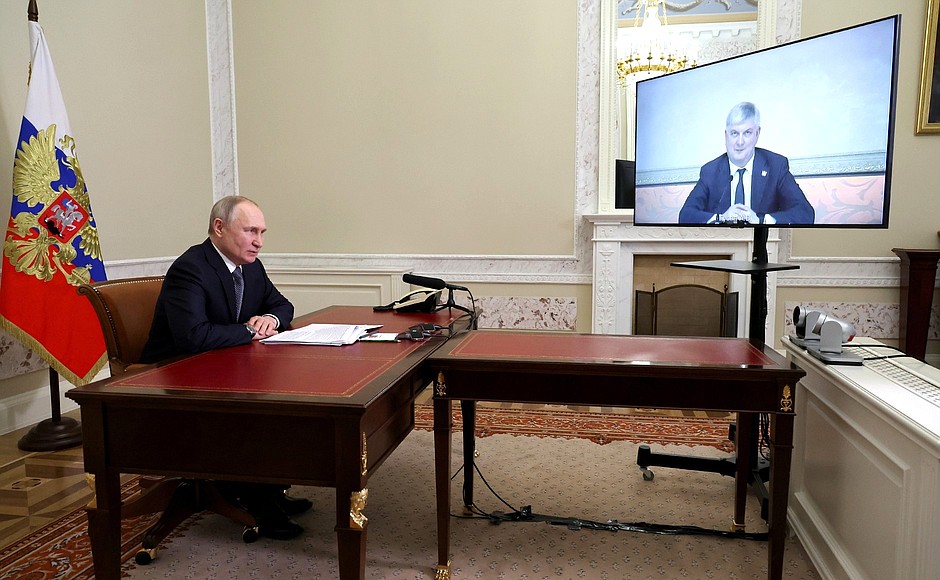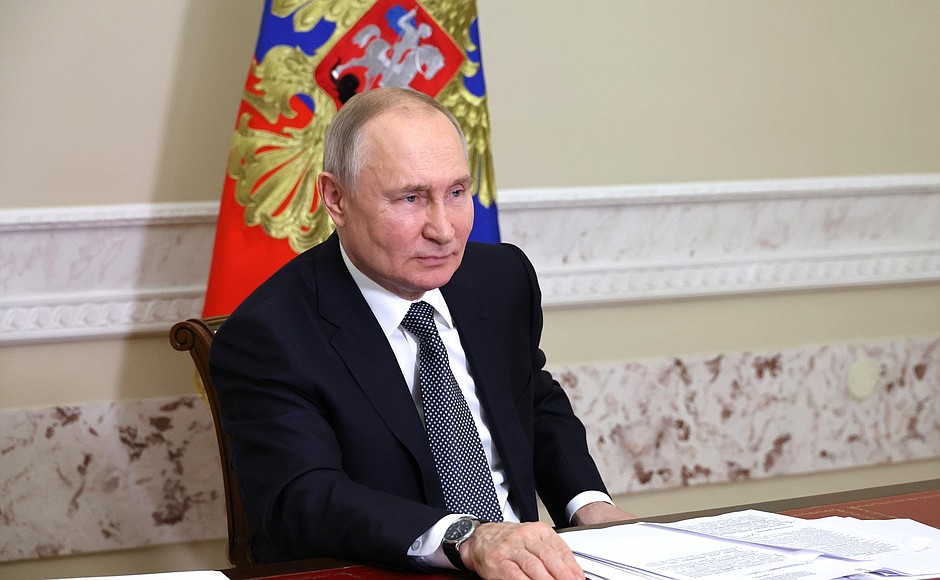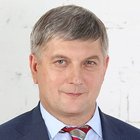At the beginning of the meeting, Vladimir Putin noted that everything was stable in the region, and that agriculture was developing faster than the average in Russia. The region is still attractive for investment. But there were some problems, too, of course.
Alexander Gusev outlined the general situation. The economy has adapted to the sanctions. All social obligations are being fulfilled. There is a socio-political consolidation in society, and the majority of people support measures related to the special military operation. More than 560,000 people are now involved in active support for those in the special military operation, including their families and those who have arrived in the region from Donbass and Ukraine. About 50 volunteer and non-profit organisations are involved in this work.
Special focus is placed on assistance for special military operation participants and their families. The Presidential instruction to open a branch of the State Fund for Support of Participants of the Special Military Operation has been fulfilled.
The governor said that patronage was being exercised over the territories of the Lugansk People’s Republic. The Voronezh Region is restoring and helping to repair social facilities in three districts, which are its area of responsibility: there were more than 40 social facilities last year. This year, the amount of support will be increased by 50 percent. The Voronezh Region is helping revive economic activity in these areas: assistance was provided in the sale of accumulated agricultural products, in the provision of mineral fertiliser, plant protection products, and seeds that are produced in the Voronezh Region. A large Voronezh enterprise will invest about 8 billion rubles in the creation of dairy farms in these areas.
Speaking about the region’s economic situation, the governor said that in recent years the GRP had been consistently growing and now stood at about 1.3 trillion rubles. It has more than doubled in five years. The region has a low unemployment rate and fairly good income growth rates. The consolidated budget of the region now exceedes 200 billion rubles. Investment has grown 5 percent to 345 billion rubles.
The region has a special economic zone, a priority development area, and six industrial parks with almost 150 resident companies.
Last year industry saw a decline of almost 2 percent. Large companies in the chemical and petrochemical industries have reduced their exports somewhat, including mineral fertilisers and ammonia. But this gap is already being made up for, and in the first quarter there is an increase of 2.5 percent.
The region is now ranked third in agriculture production in Russia. It harvested almost 7 million tonnes of grain, produced over 1 million tonnes of milk per year and ranked second in meat production, which added up to almost 700,000 tonnes. This is the result of careful investment planning. The region attracted almost 60 billion roubles of investment to its agro-industrial sector, which is the best in the Russian Federation.
The Governor asked the President to help the region rebuild the almost 300 km long Voronezh-Lugansk Highway as traffic volumes are increasing.
Another request was related to the development of domestic tourism. Last year, over a million people visited the Voronezh Region. They were largely attracted by the celebrations for the 350th birth anniversary of Peter the Great. His name is linked with Voronezh. This year, Voronezh will observe another important historical date – 400 years since the birth of St. Mitrofan, the first bishop of Voronezh and an associate of Peter the Great. The Petrovskaya Embankment and another historical place – Petrov Island – are now under reconstruction. The island hosted admiralty and Tsar Peter’s residence. He stayed there when he came to Voronezh. The Governor asked the President to instruct the Ministry of Economic Development and the Ministry of Construction to include Voronezh in related programmes.
Discussion also concerned the construction of housing and roads and social issues. New facilities for high-tech care for cancer patients are nearing completion. A surgical centre will be put into service this year, and the construction of a radiation therapy building will be launched.
Every year, the region builds four or five schools. In five years, it has built over 40 kindergartens. It has amassed interesting experience: in cooperation with the Republic of Belarus, the region is building a number of turnkey facilities. The region’s Belarusian colleagues are building a large education centre – a school for almost 3,000 schoolchildren and a kindergarten for 600 kids.
The President noted that overall the situation in the region is sustainable. However, he drew the Governor’s attention to some problems – high traffic accident rates (above the national average) and the high level of acute poisoning by alcohol products (also above the national average). Vladimir Putin mentioned the need for comprehensive measures on promoting a healthy lifestyle, development of healthcare, social infrastructure and sports facilities.
Alexander Gusev said the region has a separate programme for local roads and things are getting better. As for poisonings, it is necessary to work on this problem, in part, by developing mass sports and stepping up healthcare` efforts.
The President confirmed that instructions will be drafted on all issues raised by the Governor and wished him success.


